Search
Search Results

Definition
Augustine of Hippo
Aurelius Augustinus Hipponensis (354-430), better known as Augustine of Hippo, is extolled as the greatest of the Christian Church Fathers. More than any other writer, he developed what would become known as systematic theology, or an explanation...

Article
Saint Augustine of Hippo & His Confession of Faith
Few theologians have attained as much renown and influence in history as Saint Augustine of Hippo (354-430 CE), a 'Doctor' of the Catholic Church and simply known by his peers as 'The Knowledgeable One.' A brilliant man who never sought to...

Article
St. Augustine: from The Literal Meaning of Genesis
Saint Augustine of Hippo (354-430 CE) most famous for his work Confessions and his City of God, is regarded as one of the Fathers of The Church in the tradition of Catholicism. In this brief essay from his The Literal Meaning of Genesis...

Article
The Christian Concept of Human Sexuality as Sin
In the ancient world, human sexuality was crucial for the survival of the tribe and clan as well as pleasurable, a gift from the gods. Thousands of native cults emphasized fertility through rituals and prayers, and ancient gods were depicted...

Definition
Anaximenes
Anaximenes of Miletus (l. c. 546 BCE) was a younger contemporary of Anaximander and generally regarded as his student. Known as the Third Philosopher of the Milesian School after Thales (l. c. 585 BCE) and Anaximander (l. c. 610 - c. 546...
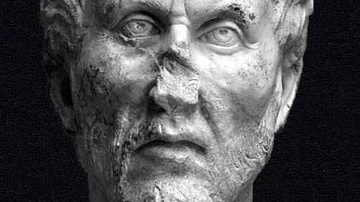
Definition
Plotinus
Plotinus (c. 204-270 CE) was a Platonic philosopher born in Lycopolis, Egypt. Although the story of his life was written down by his student Porphyry, few biographical details are included because Plotinus rejected the physical world of appearances...
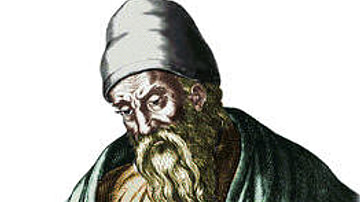
Definition
Euclid
Euclid of Alexandria (lived c. 300 BCE) systematized ancient Greek and Near Eastern mathematics and geometry. He wrote The Elements, the most widely used mathematics and geometry textbook in history. Older books sometimes confuse him with...
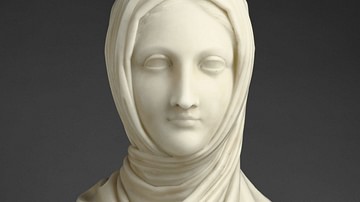
Definition
Vestal Virgin
Vestal Virgins (Latin: Vestales) were the priestesses of the Roman goddess of the hearth, Vesta, in the state religion of ancient Rome. At varying times there were four to six priestesses employed. They were the only full-time clergy (collegia...
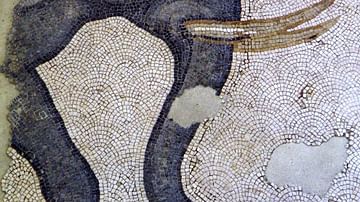
Article
North Africa During the Classical Period
Phoenician traders arrived on the North African coast around 900 B.C. and established Carthage (in present-day Tunisia) around 800 B.C. By the sixth century B.C., a Phoenician presence existed at Tipasa (east of Cherchell in Algeria). From...
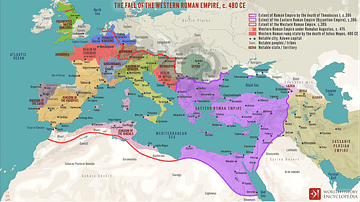
Article
Fall of the Western Roman Empire
To many historians, the fall of the Western Roman Empire in the 5th century CE has always been viewed as the end of the ancient world and the onset of the Middle Ages, often improperly called the Dark Ages, despite Petrarch's assertion. Since...